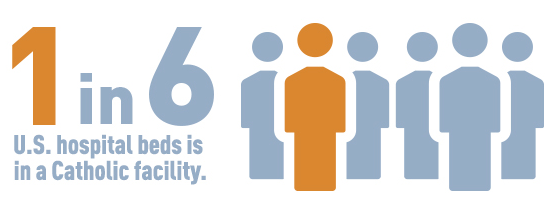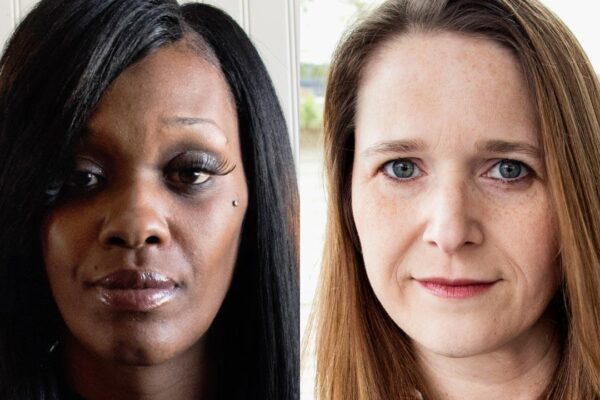

“Their Hands are Tied”: Dr. Debra Stulberg on Religious Restrictions on the Provision of Health Care
Last updated on August 08, 2016
“Their Hands are Tied”: Dr. Debra Stulberg on Religious Restrictions on the Provision of Health Care
Dr. Debra Stulberg is an Assistant Professor of Family Medicine at the University of Chicago Pritzker School of Medicine. Her research focuses on the effect of religiously-sponsored health care on reproductive health, medical decision-making, and the doctor-patient relationship. Dr. Stulberg also is an expert in Medical Ethics and serves as adjunct faculty in the McLean Center for Clinical Medical Ethics at the University of Chicago. Based on her particular clinical and research experience, she has a secondary appointment in the Department of Obstetrics and Gynecology in the section of Family Planning & Contraceptive Research at the University of Chicago Medical Center. Dr. Stulberg is the co-director of the Research Consortium on Religious Healthcare Institutions. Dr. Stulberg’s practice is full-scope family medicine with a specific emphasis on reproductive health and maternal child health. Dr. Stulberg has published numerous articles addressing her research on the impact of religion on reproductive health, including:
- “Tubal ligation in Catholic hospitals: a qualitative study of ob-gyns’ experiences,” Contraception (2014) (Obstetrician-gynecologists working in Catholic hospitals were frustrated by the hospitals’ prohibition against tubal ligation at the time of c-section which resulted in patients having to have a second subsequent surgery and created particular barriers for low-income patients.)
- “Referrals for Services Prohibited In Catholic Health Care Facilities,” Perspectives on Sexual and Reproductive Health (2016) (Some Catholic hospitals make it difficult for obstetrician-gynecologists to provide referrals for comprehensive reproductive services.)
- “Am I Going to Be in Trouble for What I’m Doing?”: Providing Contraceptive Care in Religious Health Care Systems, Perspectives on Sexual and Reproductive Health (2019) (Providers working in Catholic hospitals are limited in their ability to serve women of reproductive age, and efforts to circumvent restrictions may inadvertently stigmatize contraception and negatively affect patient care)
- “My Hands Are Tied”: Abortion Restrictions and Providers’ Experiences in Religious and Nonreligious Health Care Systems, Perspectives on Sexual and Reproductive Health (2020) (Patients seeking abortion or presenting with pregnancy complications at religiously affiliated hospitals may encounter more delays and fewer treatment options than they would at secular hospitals)
- “Short-interval pregnancy in the Illinois Medicaid population following delivery in Catholic vs non-Catholic hospitals,” Contraception (2022) (Illinois Medicaid enrollees who deliver at Catholic hospitals have an increased risk of short-interval pregnancy)
- “What you don’t know can hurt you: Patient and provider perspectives on postpartum contraceptive care in Illinois Catholic Hospitals,” Contraception (2022) (Religious restrictions on postpartum contraception restrict access, cause unnecessary delays in care, lead to misdiagnosis and marginalization of contraceptive care, and cause moral distress to providers who balance career repercussions and professional integrity with patient needs)
Medical Ethics and Religious Restrictions on Health Care
Every doctor learns about medical ethics in medical school, specifically about the importance of informed consent. In this video, Dr. Stulberg explains that a patient must be made aware of all standard of care treatment options, including the risks, benefits and alternatives to each path of treatment for any given health care need. Because doctors at religiously affiliated hospitals and facilities often withhold important information about certain treatment options for religious reasons, patients cannot give informed consent. This denial of information, harms the doctor-patient relationship by preventing the patient from being able to make an informed decision about her own health.
Denial of Contraceptives on Religious Grounds
In this video, Dr. Stulberg discusses how Catholic hospitals and health care facilities cannot provide contraception because of religious doctrine. Even though the vast majority of women use birth control at some point in their reproductive lives and most health care professionals consider contraceptives part of standard care for women, doctors at Catholic hospitals and facilities often have to find work-arounds to be able to prescribe birth control to their patients. These under-the-table ways of getting around the rules to get birth control into women’s hands sends the harmful message that birth control for the sake of birth control is not a legitimate medical service.
Denial of Miscarriage Treatment on Religious Grounds
Learn more:
- Put Patients First: Initiative to Stop the Use of Religion to Deny Health Care
- Health Care Denied: Patients and Physicians Speak Out About Catholic Hospitals and the Threat to Women’s Health and Lives
- Share Your Story: If you have been the victim of a health care denial, or you have a story to share, tell us about it
Documents
- Obstetrician-gynecologists, religious institutions, and conflicts regarding patient-care policies.pdf
- Conflicts in Care for Obstetric Complications in Catholic Hospitals.pdf
- Tubal ligation in Catholic hospitals- a qualitative study of ob-gyns' experiences.pdf
- Referrals for Services Prohibited In Catholic Health Care Facilities.pdf
- Do women know whether their hospital is Catholic?.pdf
Related Issues
Related Content

- Women's and Reproductive Rights


